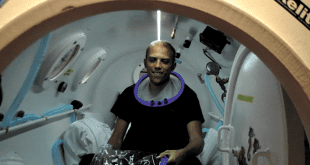 Applied behavioral analysis (ABA) therapy can take place in a wide variety of settings, affording the opportunity to work on skill sets where it is most relevant for the learner. From a caregiver’s perspective, the choice to receive therapy in home versus in clinic or in any other environment, can be stressful and frustrating. BCOTB (Behavioral Consulting of Tampa Bay) provides intensive early-intervention therapy in the clinical setting because in-clinic ABA therapy has several advantages when done properly, with caregiver involvement, community consultation, and coordination of care.
Applied behavioral analysis (ABA) therapy can take place in a wide variety of settings, affording the opportunity to work on skill sets where it is most relevant for the learner. From a caregiver’s perspective, the choice to receive therapy in home versus in clinic or in any other environment, can be stressful and frustrating. BCOTB (Behavioral Consulting of Tampa Bay) provides intensive early-intervention therapy in the clinical setting because in-clinic ABA therapy has several advantages when done properly, with caregiver involvement, community consultation, and coordination of care.
Supervision and Oversight
On average, BCOTB exceeds the minimum standards of supervision for Registered Behavior Technicians (RBTs). RBTs are mandated to receive supervision for 5% of their hours across at least two supervision sessions each month. This means that an RBT who works 40 hours per week and roughly 160 hours per month receives 8 hours of supervision each month (roughly two hours per week). This guideline represents the minimum standard of acceptable supervision. RBT staff are directly supervised by Board Certified Behavior Analysts (BCBAs) and Board Certified Assistant Behavior Analysts (BCaBAs). In clinic settings, such as at BCOTB, additional supervision is easily achieved because travel time for BCBAs and BCaBAs is greatly lessened and nearly eliminated. The more supervision an RBT team member receives, the more feedback he/she has received on performing best practice and the more likely he/she will be successful with teaching appropriate skills at an appropriate rate. Increased supervision and oversight increases the likelihood that programming is run correctly with a high level of consistency. At BCOTB, BCBAs and BCaBAs are readily available to answer staff questions, check in on sessions, and provide general guidance. This represents a strong advantage to in-clinic therapy.
Proper Therapy Procedures
Therapy provided in a clinical environment is also easily controlled, meaning the room can be arranged to best facilitate learning. While community settings provide rich opportunities to target social skills and more complex verbal skills, a clinic sets the stage for learning preacademic and essential life tasks in a manageable way, with materials arranged for the learner’s success.
Strong Therapy Teams
In addition to receiving supervision during session, BCOTB’s RBTs also receive supervision during designated “case meetings” with other RBTs and the BCBA/BCaBA in charge of a client’s programming and therapy. Case meetings are essential to ensuring that all staff are running programming and responding to problematic behaviors in a consistent manner. In-clinic therapy affords the opportunities for therapy teams to meet together on a regular basis to strengthen communication and collaboration, which is a hallmark of BCOTB’s services.
Caregiver Support
It is often beneficial to have a clear date, time, and setting for caregiver support sessions. Caregiver support sessions are meetings during which the BCBA/BCaBA meets with caregivers and identifies goals and areas for growth in either the management of problem behavior or the acquisition of new skills. The certified staff member explains and models therapy techniques and gives caregivers the opportunity to practice therapy procedures and receive feedback. While caregiver support can certainly be effective in any environment, the consistency of regularly scheduled sessions without other distractors present (e.g., answering the phone, needing to make dinner, answering the door, petting the dog, etc.) is invaluable for clarifying goals and making treatment most consistent.
Ultimately, the choice to receive therapy in a particular setting is a decision that caregivers must make. BCOTB encourages caregivers to ask questions and to choose their child’s therapy setting based on his/her unique needs, skillsets, and goals. Children who are older and/or who already have complex verbal skills (e.g., can recall past events, speak in full sentences, answer a variety of “wh” questions, demonstrate some reading comprehension, etc.) and/or social skills may benefit more from receiving therapy in the community setting. BCOTB offers a free consultation for caregivers to discuss possible therapy settings and to tour BCOTB’s locations. Contact us today for more information!
*BCOTB is taking the upmost precautions during the Coronavirus pandemic. Social distancing, when necessary, facemasks, required health screenings, cleaning and sanitizing that meets safety and health requirements, is all part of the BCOTB experience. Our goal is to provide the best pediatric Autism therapy services while keeping our clients, therapy staff, and caregivers safe (and healthy)!*
Most major insurance covers BCOTB services and programs but, in most cases, a diagnosis is important for reimbursement purposes.
President/Founder Kelley Prince, M.A., BCBA
“My career in applied behavior analysis began in 1998 when I began providing behavioral therapy services for a family who had a child with autism.
I was immediately intrigued by all of the benefits that such therapy had to offer, and I immediately knew I wanted to learn more about how I could help other children and their families. I studied Applied Behavior Analysis at the University of South Florida, graduating with a master’s degree in 2004. In 2003, while in my last year of graduate school, I founded BCOTB. At the time, it was one of the only clinic of its kind in the Tampa Bay area in which Applied Behavior Analysis services were offered.
“Since 2003, BCOTB has grown to four office locations and employs 75+ people in the Tampa Bay Area. Our original location was opened in 2007, which we quickly outgrew. Since that time, the Tampa location has expanded two more times and currently resides off of Hillsborough Avenue right outside of Westchase. Knowing that BCOTB wanted to be able to reach more clients in the autism community, we opened our first satellite location in 2009 in Wesley Chapel. This location also quickly expanded and has recently relocated to a larger facility located outside the Seven Oaks subdivision and services the clients in the New Tampa, New Port Richey and Wesley Chapel area. Our third phase of expansion occurred in 2013 when we opened our Brandon facility. Located at the corner of 301 and Adamo Drive, the Brandon facility services clients from MacDill AFB, Lakeland, Valrico, Brandon and Riverview areas. And, finally, in 2018, BCOTB opened its 4th clinic location on North Dale Mabry Highway in Carrollwood and is now considered our main location.
“I am proud to say that BCOTB has had a successful past and is continuing to grow. The success of our business can be attributed to our management structure, policies and procedures and, most importantly, our therapy team.
“All of BCOTB’s therapists receive training which meets the requirements for the Registered Behavior Technician credential provided by the Behavior Analyst Certification Board and successfully complete competency assessments. Staff receives ongoing performance reviews to ensure they are utilizing appropriate teaching and behavior reduction procedures in order to maximize your child’s progress.”
To find out more, please visit www.bcotb.com or contact one of the BCOTB offices below:
Brandon
9225 Bay Plaza Blvd., Suite 401
Tampa, FL 33619
(813) 440-4933
Carrollwood
14497 N. Dale Mabry Hwy
Suite 115-N
Tampa, FL 33618
(813) 814-2000
Westchase/Oldsmar
6951 Pistol Range Road, Suite 101
Tampa, FL 33635
(813) 696-0700
Wesley Chapel
27604 Cashford Circle
Wesley Chapel, FL 33544
(813) 345-8584
 Central Florida Health and Wellness Magazine Health and Wellness Articles of the Villages
Central Florida Health and Wellness Magazine Health and Wellness Articles of the Villages


